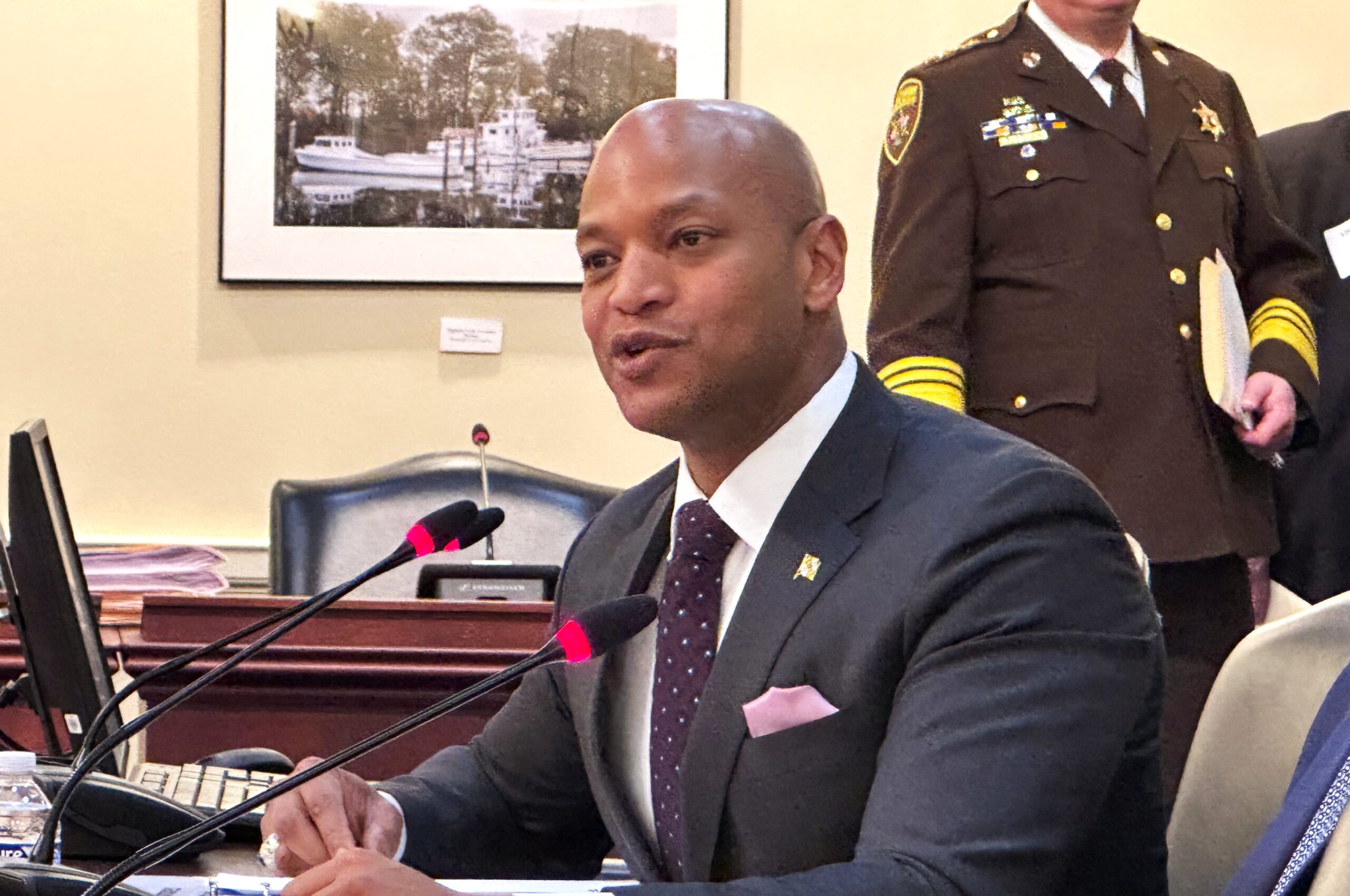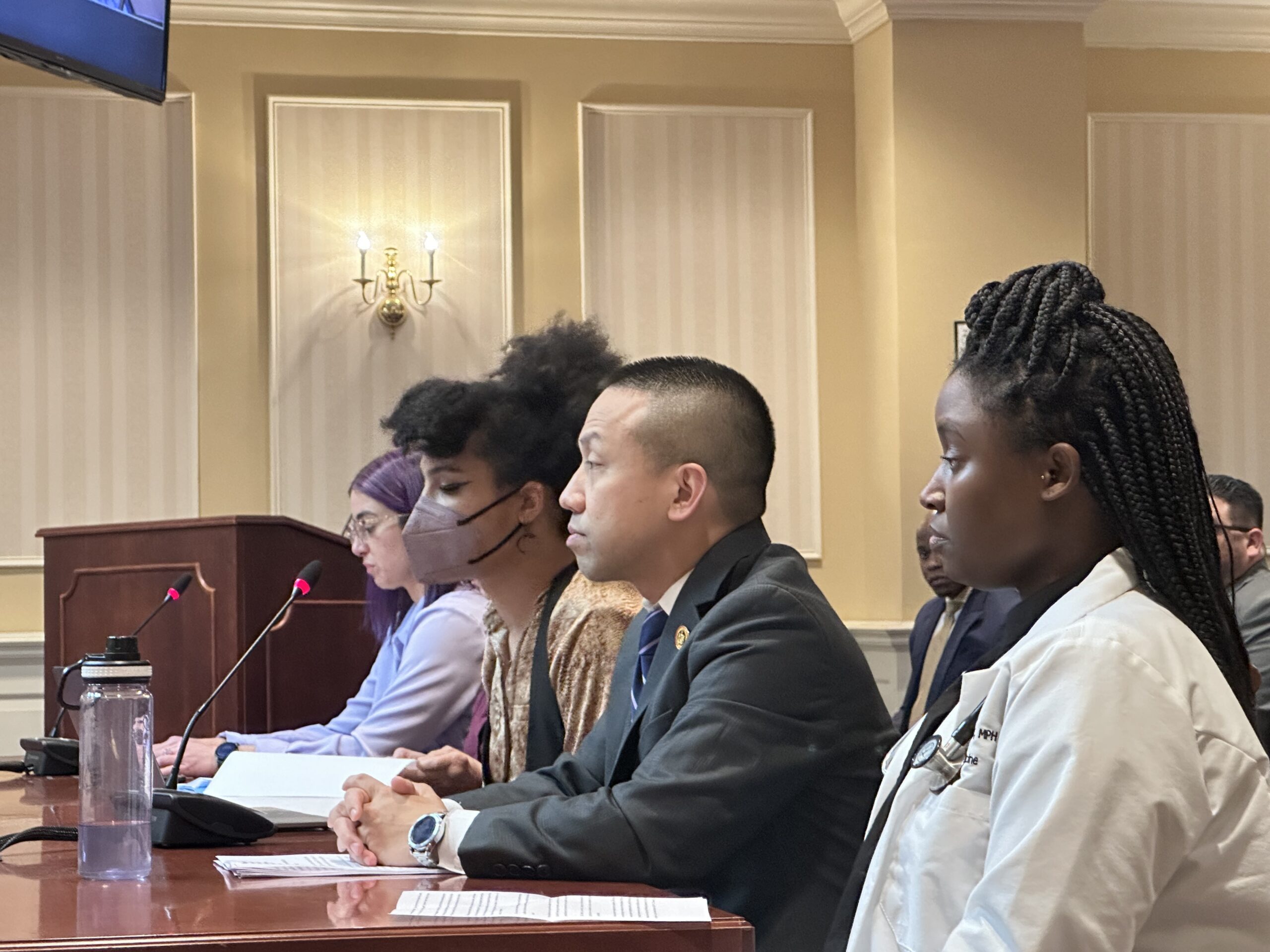Bill Would Open the Door for Investigations in Wrongful Conviction Cases

House Judiciary Committee Vice Chair David Moon (D-Montgomery) is sponsoring a bill encouraging investigations into cases of wrongful convictions.
“I would argue that in law and criminal justice, imprisoning innocent people is a catastrophe,” Moon said Tuesday at a hearing on his bill. “It’s the professional equivalent of a doctor amputating the wrong leg.”
As amended, House Bill 249 would require that the Attorney General’s office and professional boards, including the Maryland Commission on Judicial Disabilities and the Attorney Grievance Commission, be notified when the Board of Public Works learns that someone is eligible for compensation because they have been wrongfully convicted or because a judge grants a writ of actual innocence.
Under Maryland law defendants can file a writ of actual innocence if they submit new evidence that hadn’t been discovered in time to make a motion for a new trial.
Originally, the bill would have required the Attorney General’s office to investigate these cases. After an amendment, the notification would not require an investigation but would put the issue on someone’s desk.
“None of these supposedly self-regulating professional entities has, in the decades that these cases have been going on, lifted a finger to do anything. So I would suggest to you that this is the last best offer,” Moon said Tuesday.
Moon, who is a lawyer, pointed to the Maryland Rules of Professional Conduct for Attorneys, which requires lawyers to report known professional misconduct.
“… if I can’t get it honestly, I am content to sit there and file these third-party complaints out of the corner of my office,” he continued. “I’m not …joking.
According to Shawn Armbrust of the Mid-Atlantic Innocence Project, exoneration cases in Maryland have higher than average rates of official misconduct.
Armbrust noted a case where police coerced a false confession from a developmentally disabled person after threatening him with the death penalty, untruthfully telling him that he failed a polygraph examination and interrogating him throughout the night while withholding food and sleep.
“Unfortunately, there’s really no accountability for those actions and there’s no effort to learn from those mistakes that taxpayers and innocent people are paying for with their lives and dollars,” she said.
But these cases are still rare.
According to Nathaniel Erb, a state policy advocate for the National Innocence Project, in Maryland there have been 35 cases, across six jurisdictions, in which people have been found to be wrongfully convicted.
Members of the Maryland State’s Attorneys’ Association testified against the bill, arguing that it isn’t necessary because there already are processes in place to handle misconduct.
Howard County State’s Attorney Richard H. Gibson Jr. (D), president of the Maryland State’s Attorneys’ Association, called the bill “a solution in search of a problem.” He said that there is no barrier to anyone filing claims with the Attorney Grievance Commission or a police accountability board.
“I see that there’ve been cases in Howard, Montgomery, Prince George’s, Baltimore — I’m curious if anyone’s aware if anything has happened to any of the attorneys involved in … any of these pardon cases where anyone has taken any action with respect to [the] Attorney Grievance [Commission] or Judicial Disabilities [Commission],” Moon said, addressing members of the Maryland State’s Attorneys’ Association.
Caroline County State’s Attorney Joseph A. Riley (R) said there have been no such cases in Caroline County and asked Moon if he was suggesting that he file grievances “based on newspaper articles.”
The only case mentioned by members of the Maryland State’s Attorneys’ Association was that of retired Harford County State’s Attorney Joseph I. Cassilly (R).
Cassilly, brother of state Sen. Robert G. Cassilly (R-Harford), was disbarred last fall after it was discovered he withheld evidence for more than a decade after a defendant’s conviction. Among other findings, the Attorney Grievance Commission concluded that he discarded evidence, tried to have forensic evidence destroyed and knowingly made false statements in court.
Cassilly had served as Harford County’s top prosecutor for nearly 40 years. He retired in 2019.
Gibson also argued that the bill poses a public safety risk because prosecutors would be less inclined to take on “factually challenging” cases out of fear of being investigated.
“And what defendant would not pursue a wrongful conviction case under this system?” he asked. “They have nothing but time.”




 Creative Commons Attribution
Creative Commons Attribution